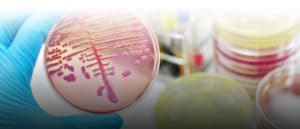ماذا يفعل الميكروبيولوجي؟
عذرا ، لم يتم العثور على وظائف.
## What Does a Microbiologist Do?
**Microbiology** is the study of microorganisms, including bacteria, viruses, fungi, and protozoa. Microbiologists investigate their structure, function, metabolism, growth, and interaction with other organisms. They play a vital role in various fields, including medicine, agriculture, environmental science, and biotechnology.
### Key Responsibilities of a Microbiologist
Microbiologists perform a wide range of tasks:
* **Identify and classify microorganisms:** They use traditional techniques such as culturing and staining, as well as molecular techniques like DNA sequencing to identify and characterize microorganisms.
* **Study microbial growth and metabolism:** Microbiologists investigate the growth requirements, nutritional needs, and metabolic processes of microorganisms.
* **Analyze microbial interactions:** They examine how microorganisms interact with each other and with plants, animals, and humans. This includes studying microbial symbiosis, commensalism, and pathogenesis.
* **Develop diagnostic tests:** Microbiologists create and evaluate tests to identify and diagnose microbial infections in humans, animals, and plants.
* **Study infectious diseases:** They research the transmission, prevention, and treatment of infectious diseases caused by microorganisms.
* **Develop antimicrobial drugs:** Microbiologists collaborate with chemists to develop new antibiotics and other antimicrobial therapies.
* **Monitor microbial ecology:** They study the distribution and abundance of microorganisms in various environments, such as soil, water, and the human body.
* **Apply microbiology in agriculture:** Microbiologists investigate the role of microorganisms in plant growth, soil fertility, and pest control.
* **Use microorganisms in biotechnology:** They harness the capabilities of microorganisms to create biofuels, enzymes, and other products.
### Educational Requirements for a Microbiologist
Most microbiologists hold a bachelor’s degree in microbiology, biology, or a related field. Graduate degrees (Master’s or PhD) are often required for research or leadership positions. Aspiring microbiologists typically complete coursework in biochemistry, genetics, molecular biology, immunology, and statistical analysis.
### Career Outlook and Salary Expectations
According to the U.S. Bureau of Labor Statistics, the median annual salary for microbiologists was $82,430 in 2021. The job outlook for microbiologists is projected to grow 5% from 2021 to 2031, faster than average for all occupations. This growth is due to increasing demand for microbiologists in areas such as healthcare, biotechnology, and environmental protection.
### Conclusion
Microbiologists play a crucial role in understanding and managing microorganisms, which impact our health, agriculture, and environment. They perform diverse tasks ranging from identifying and classifying microorganisms to developing diagnostic tests and antimicrobial therapies. With the increasing demand for microbiologists in various fields, the career outlook is promising for professionals with the necessary education and skills.
2 تعليقات
اترك ردّاً
المقالات الشعبية







A microbiologist studies microorganisms, such as bacteria, fungi, and viruses.
They identify, classify, and characterize microorganisms, and study their structure, function, and interactions with each other and with the host organism.